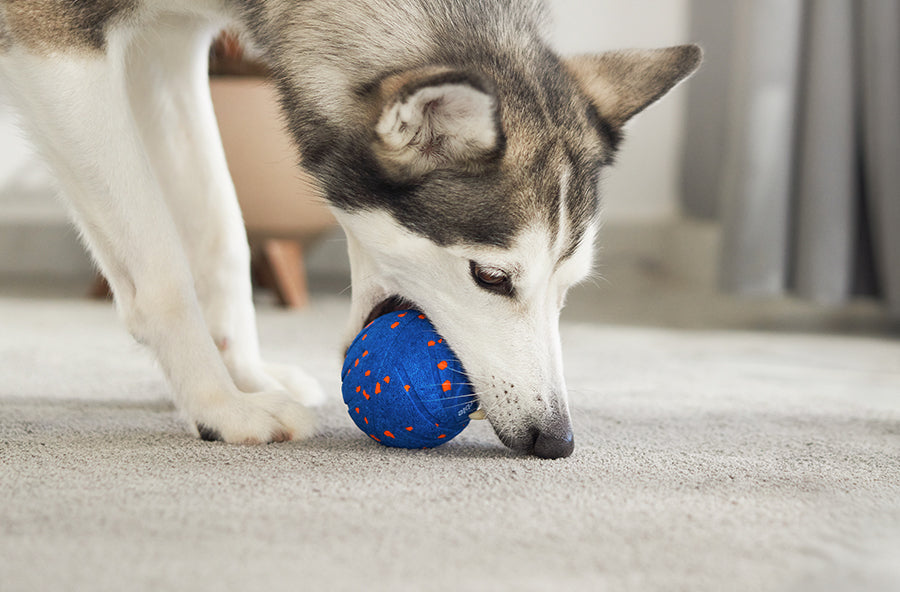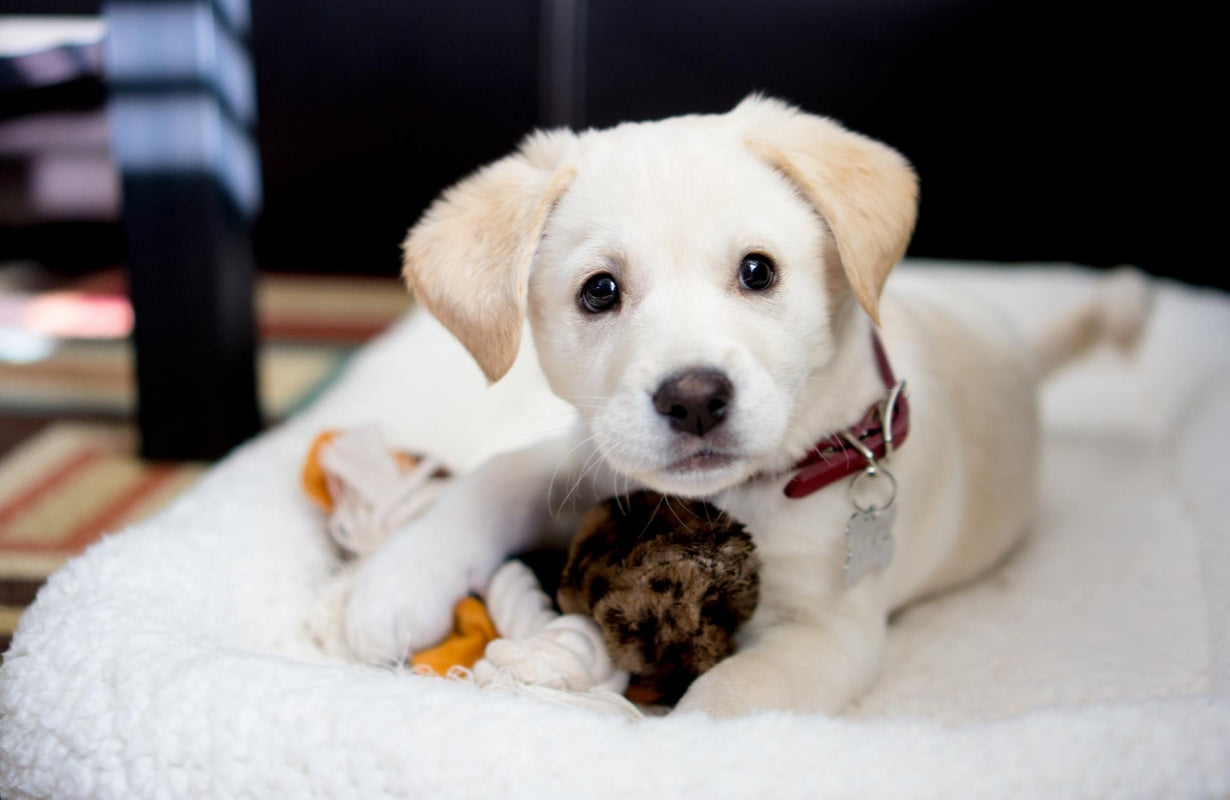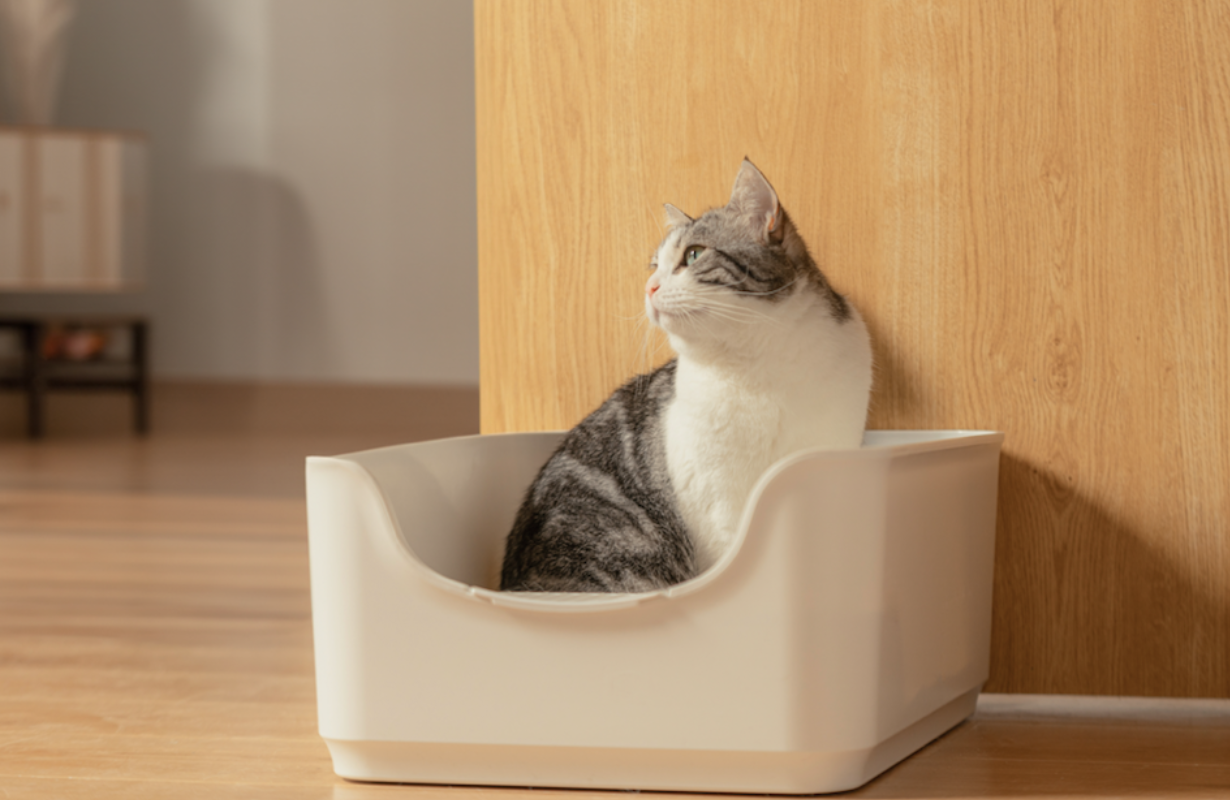Bringing a new puppy into your home is an exciting time filled with joy and anticipation. However, it's crucial to address behavior issues promptly to ensure your puppy grows up to be well-behaved and happy. Here, we will explore five common puppy behaviors that need to be nipped in the bud early. By understanding these behaviors and implementing the right training techniques, you can set your puppy on the path to becoming a well-mannered and cherished member of your family.

#Behavior 1. Potty Training Challenges
One of the most common hurdles for puppy owners is potty training. Accidents indoors can lead to frustration and mess, but with the right approach, you can overcome this challenge.
Consistency is key. Establish a routine for feeding and bathroom breaks, and take your puppy outside frequently, particularly after meals, naps, and play sessions. When accidents happen, remain patient and avoid punishment, as it can create fear and hinder progress.
Instead, use positive reinforcement by praising and rewarding your puppy when they eliminate in the appropriate spot. With time, patience, and a consistent routine, your puppy will learn where to go potty.
#Behavior 2. Excessive Barking and Vocalization
Puppies may bark excessively, causing noise disturbances and potential conflicts with neighbors. Excessive barking can have various triggers, such as boredom, fear, or attention-seeking. To manage this behavior, it's important to identify the underlying cause. Provide mental and physical stimulation through interactive toys, regular exercise, and structured playtime.
When your puppy barks excessively, redirect their focus to a more appropriate activity, such as a puzzle toy or a training session, and reward calm behavior. Consistency, patience, and positive reinforcement are vital in curbing excessive barking.

#Behavior 3. Leash Pulling and Walking Challenges
Taking your puppy for a walk should be an enjoyable experience, but leash pulling can turn it into a frustrating ordeal. Teaching your puppy proper leash manners is essential. Start by using a lightweight and properly fitted leash and collar/harness. Begin in a low-distraction environment, rewarding your puppy for walking calmly beside you. If they pull, stop walking and wait for them to return to your side before resuming.
Consistency and positive reinforcement are key in helping your puppy understand that pulling on the leash does not lead to forward progress. As your puppy learns, gradually increase the distractions during your walks.
#Behavior 4. Jumping on People and Countertops
Puppies often jump on people out of excitement and explore countertops driven by curiosity. It's crucial to teach your puppy alternative behaviors to discourage jumping.
Start by teaching them a basic obedience command, such as "sit" or "down." When your puppy greets someone calmly, reward them with attention, praise, and treats. If they jump, withdraw your attention and turn away. Reinforce the desired behavior by consistently rewarding them when they keep all four paws on the ground.
To prevent countertop exploration, create a puppy-proof environment by keeping tempting items out of reach and providing appropriate outlets for their energy, such as interactive toys and regular exercise.

#Behavior 5. Destructive Chewing
Puppies explore the world through their mouths, and destructive chewing is a common behavior. To prevent damage to your belongings, provide appropriate chew toys specifically designed for puppies. Offer a variety of textures and sizes, and regularly rotate them to keep your puppy engaged. Puppy-proof your home by removing any tempting items within reach, such as shoes or electrical cords.
If you catch your puppy chewing on something they shouldn't, redirect their attention to a toy and praise them when they engage with it. Consistency is vital in teaching your puppy what is acceptable to chew on.
Conclusion
Addressing problematic puppy behaviors early on is vital for a well-behaved and happy canine companion. By tackling behaviors like potty training challenges, destructive chewing, leash pulling, excessive barking, and jumping on people and countertops, you can establish a strong foundation for your puppy's behavioral development. Remember, consistency, patience, and positive reinforcement are key throughout the training process. If you encounter difficulties, seek guidance from professional trainers or behaviorists who can provide additional support and expertise. Invest time and effort in your puppy's training, and you'll reap the rewards of a lifelong bond built on mutual understanding and trust.




















Leave a comment
All comments are moderated before being published.
This site is protected by hCaptcha and the hCaptcha Privacy Policy and Terms of Service apply.